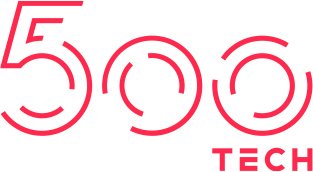- info@500tech.com
- HaYetsira 19, Ramat Gan
React is a mature library with a vast ecosystem. Therefore there is a plethora of resources available from short blog posts to paid online courses. It is easy to get lost there, especially if you can't assess the quality. However, you don't need much to get a good basic knowledge.
Before you start learning React though, it is essential to have a good JavaScript knowledge and understanding. React doesn’t come with custom templating language and has very few APIs. Most of the time you are using pure JavaScript.
When learning React, most questions people have are actually related to JavaScript. Questions like “why can’t I use this in class method” or “why can't I use if statement in JSX” are more common than “what does this specific lifecycle event does”.
Another tip: do not rush and try to learn React together with Redux (or MobX). I’ve seen a lot of tutorials that teach both from the get go, and as much as I love Redux (even wrote a book about it), I think it is very important to understand React first before working with either Redux or MobX. Developers that tend to do so, often fail to realize that the magic behind the connect() function from react-redux is just this.setState().
There are a lot of lists of the top resources for learning React, but in fact, you don't need much. See for yourself:
Read the Documentation
As obvious as it sounds, surprisingly many people still don’t think of the official docs as the primary resource for learning React. They may not have been the best source in the early days, but they have been rewritten and are actually pretty good now.
Free Video
There are many great courses on Egghead.io, but I would recommend starting with the one by Joe Maddalone's course Start Learning React followed by Nik Graf's one on new features of React 16.
Free Book
If you prefer to learn from a good book, take a look at Robin Wieruch’s The Road to Learn React. Surprisingly, many parts of this book are about JavaScript, and he explains a lot of concepts in an easy way.
As you can see, you don't need a lot of resources to grasp the basics of React. Obviously, it is not enough to become a good developer, but having a good base would allow you to learn other things much faster and make fewer mistakes.
- info@500tech.com
- HaYetsira 19, Ramat Gan
